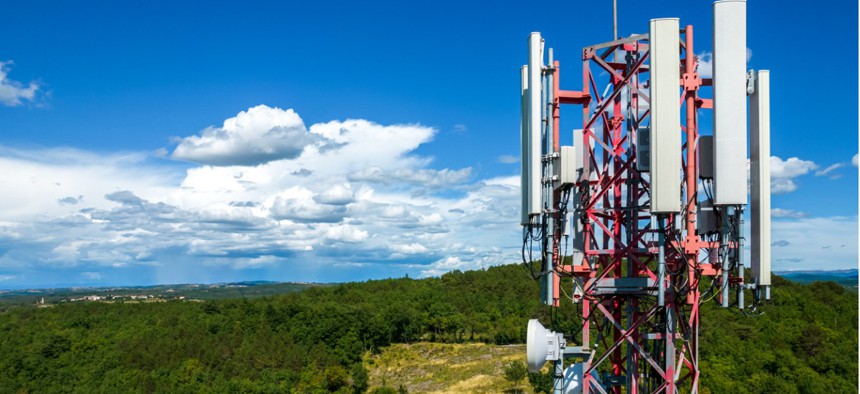Labor Seeks Members For Telecom Working Group Focused on 5G

D-Keine/iStock
The agency is seeking qualified members for its Telecommunications Interagency Working Group, part of the Infrastructure Act passed in November.
The Labor Department is looking for nominations to its Telecommunications Interagency Working Group, or TIWG, part of the agency’s larger mission to expand and deploy a nationwide 5G infrastructure.
Announced in the Federal Register on Tuesday, the Labor secretary issued a formal request for nominations for TIWG membership with a deadline of Dec. 30. Qualified candidates should have a background as a representative and advocate for various fields within the telecommunication industry, including labor organizations, tower climber safety groups and construction apprenticeship programs.
Potential members must also be part of either a Native American Tribal organization, a rural communications network, or a representative of an accredited high education institution, along with other qualifications.
Leadership at the Labor Department is looking to capture a diverse group to help further federal policies and initiatives surrounding 5G technology.
The establishment of the working group is one of the provisions laid out in the Infrastructure Investment and Jobs Act, one of President Biden’s hallmark public investment bills that was signed into law in November.
The working group’s primary goal will be to craft a report with ‘‘recommendations to address the workforce needs of the telecommunications industry, including the safety of that workforce.”
Some of the topics that must be addressed and analyzed in the pending report are which federal laws may need to be augmented to strengthen the U.S. telecommunications infrastructure across multiple sectors; identify which existing government programs can help expand 5G infrastructure; develop incentives to recruit a robust telecommunications workforce; and protect working conditions.
Per the clause in the Infrastructure Investment and Jobs Act, the TWIG must be formed by Jan. 14, 2022.
This was a critical component in Biden’s infrastructure bill, with roughly $65 billion in federal funding dedicated to expanding broadband access and high speed internet.
Establishing a nationwide network of 5G communications systems has been on lawmakers' to-do list for several years, with an emphasis on connectivity in rural areas. A slew of other legislation relating to the U.S.’s 5G development, such as House Resolutions and Senate bills, have been proposed over the last year.
The Defense Department has been particularly attuned to the need for a massive 5G rollout, and is in the process of testing various prototypes and implementing strategic deployment plans.






